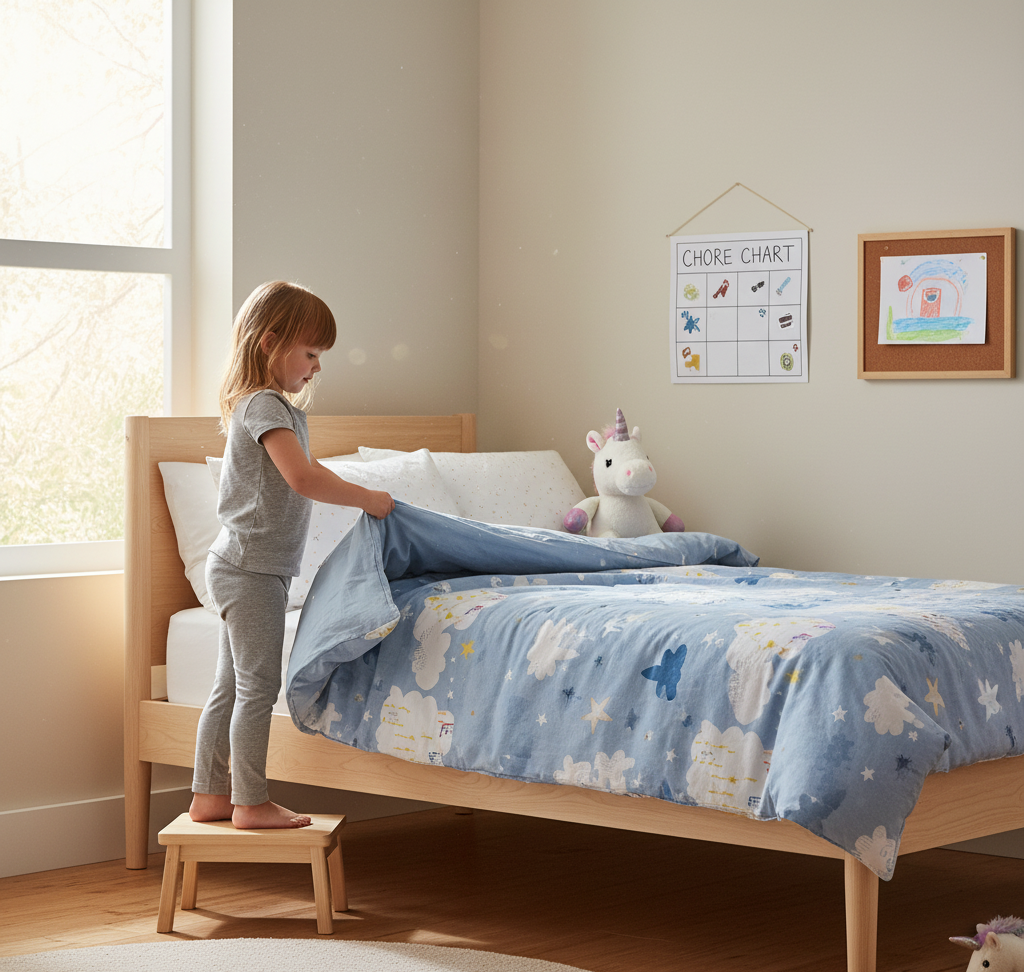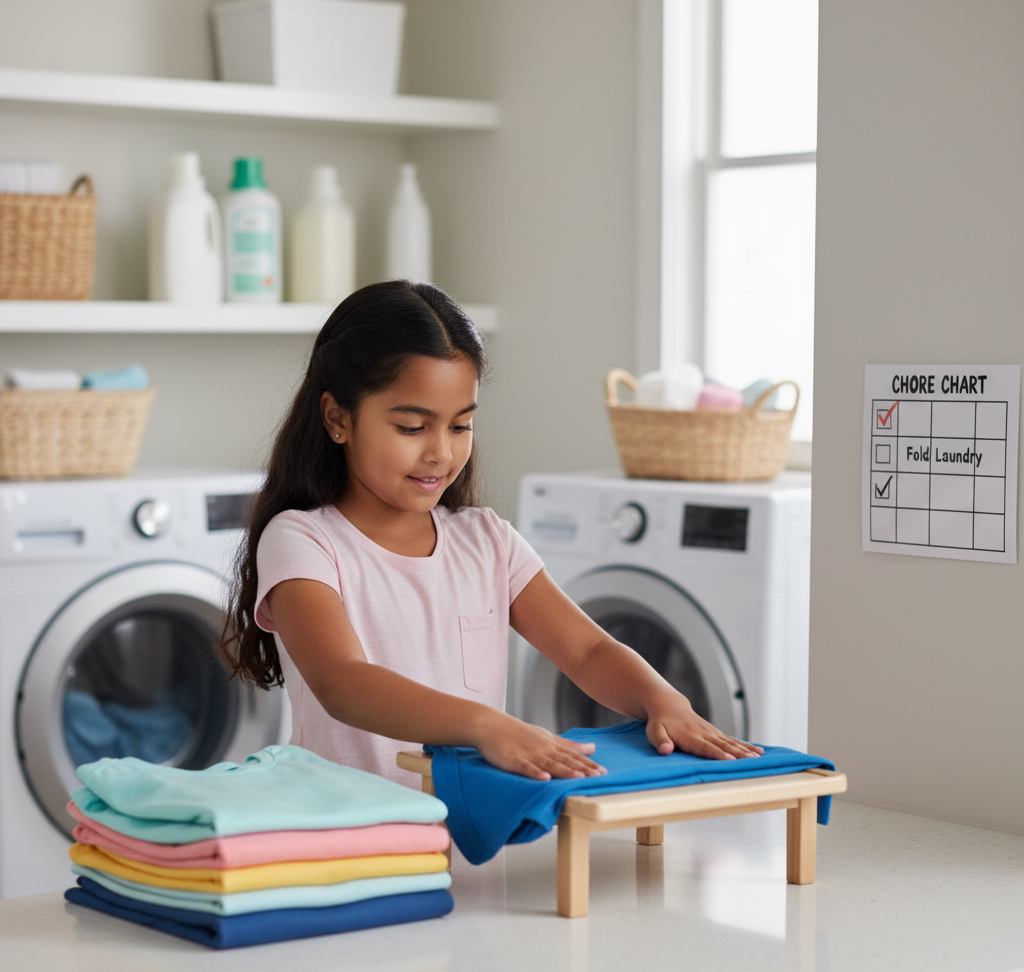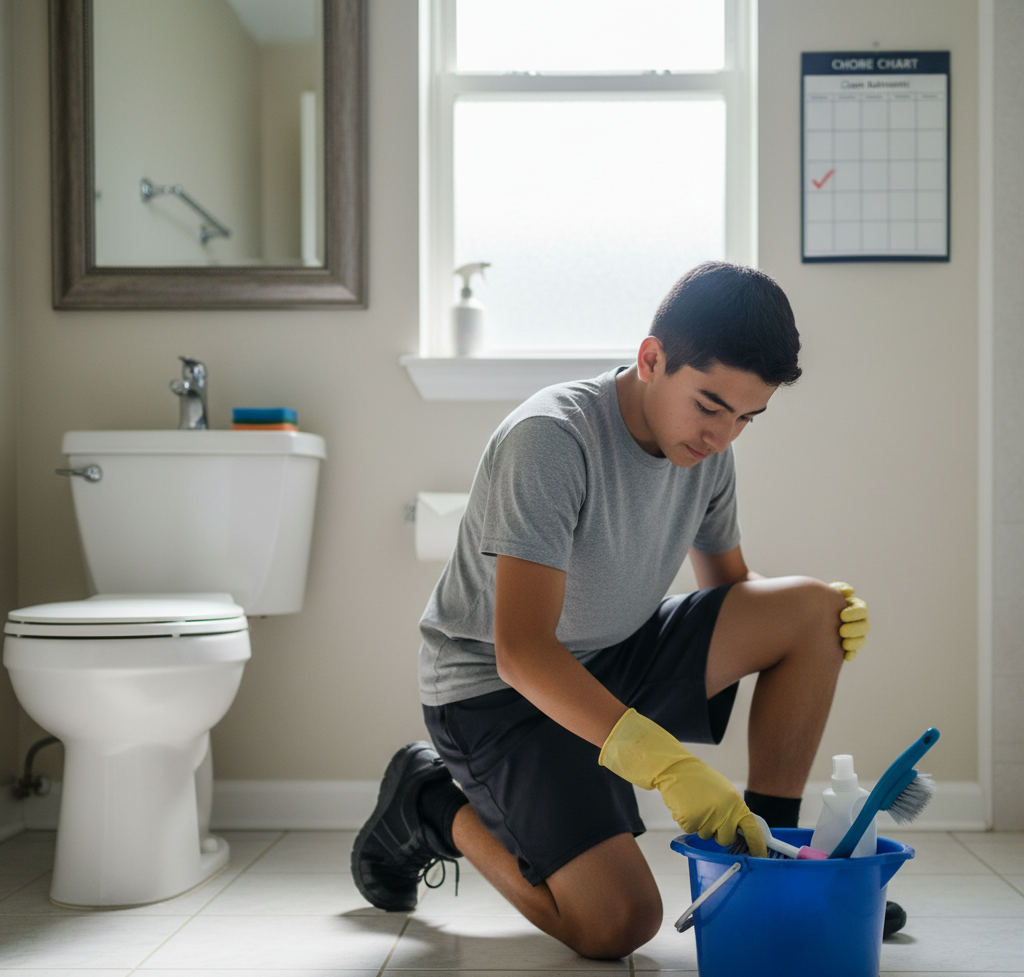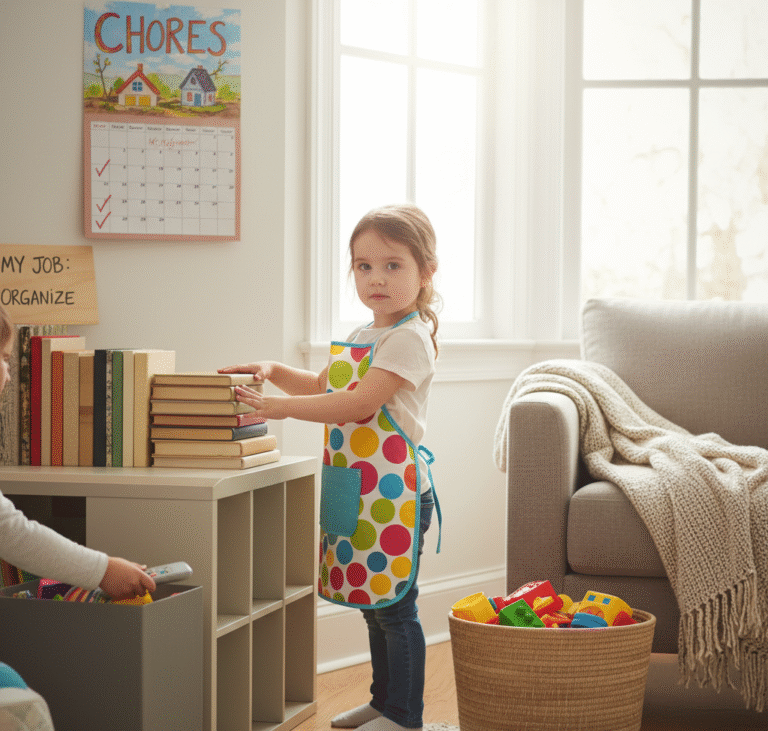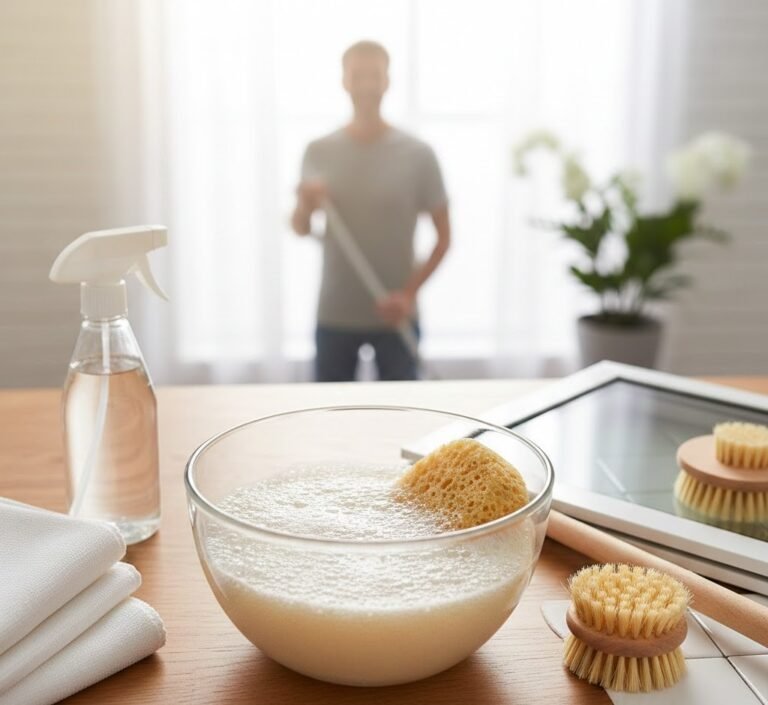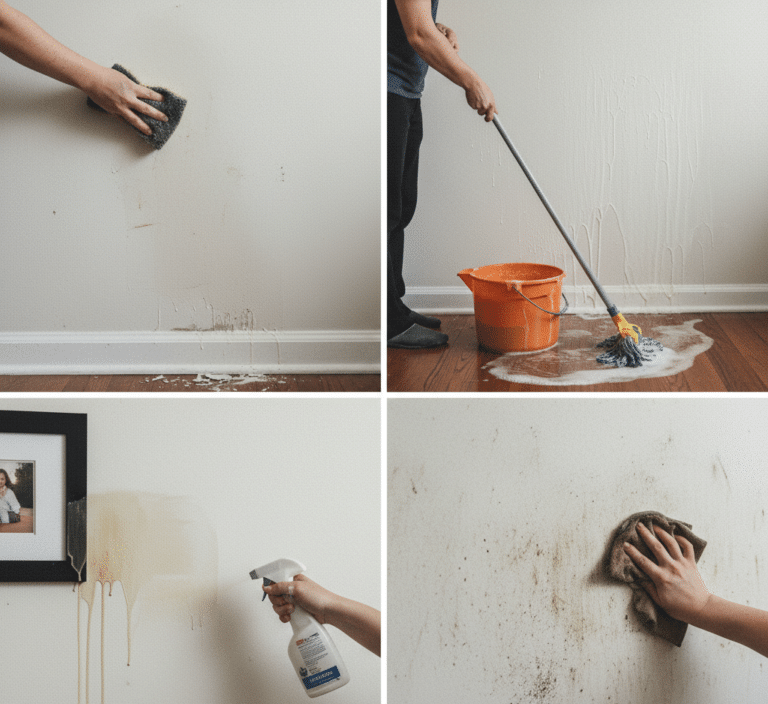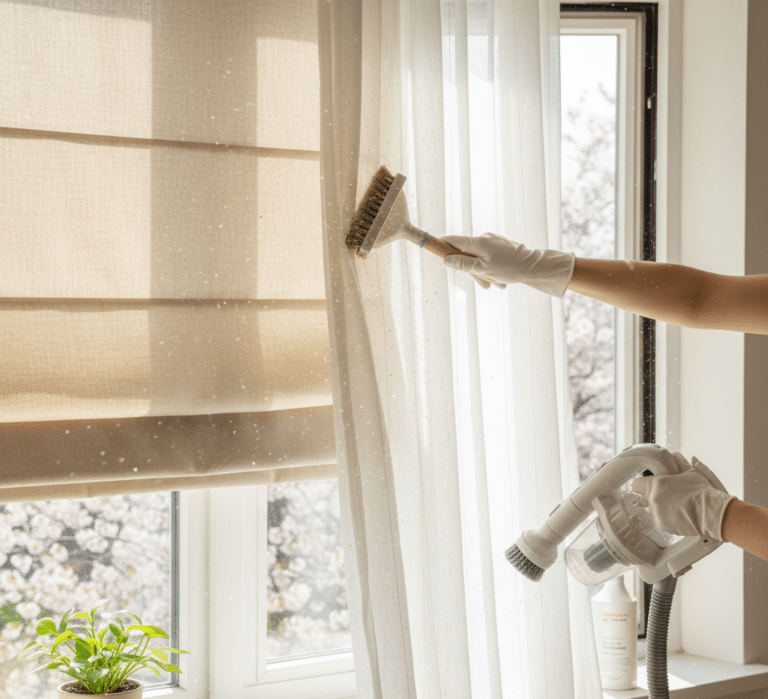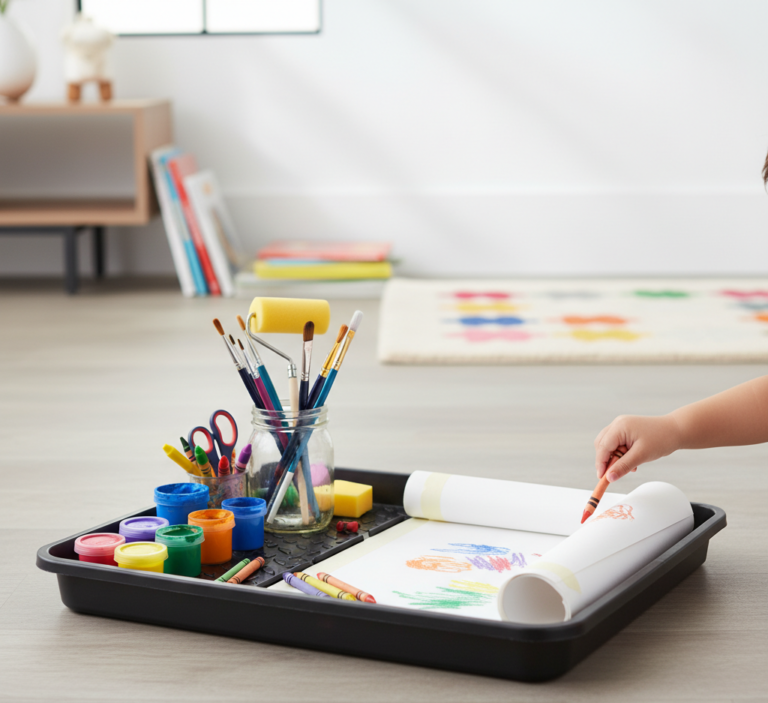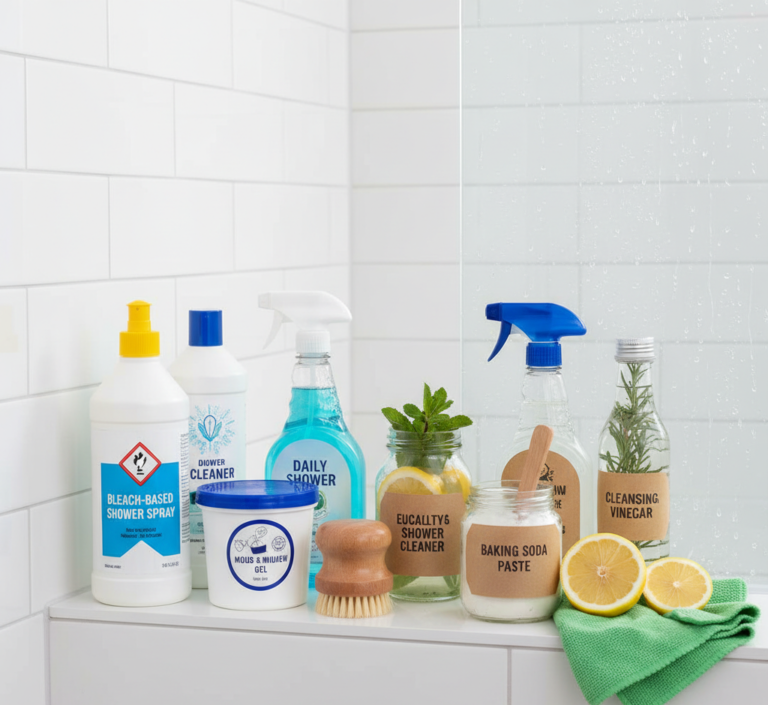The question many parents have is how do I teach my child to be more responsible? In the bustling rhythm of modern family life, the daily upkeep of a home can often feel like a relentless and overwhelming task, a never-ending cycle of tidying, wiping, and washing that falls heavily on the shoulders of the parents. In this constant battle against clutter and mess, one of the most powerful yet frequently underutilized resources is sitting right at the dinner table: the children. Involving children in daily cleaning is not about offloading parental responsibility or achieving a flawlessly pristine home. It is a profound and deliberate act of teaching, a foundational lesson in responsibility, respect, life skills, and the intrinsic value of contributing to a shared environment.
Building Character
Transforming chores from a dreaded obligation into a natural and expected part of the daily routine is a process that builds character and strengthens family bonds. It shifts the household dynamic from one where parents are the service providers and children are the consumers, to one of a collaborative team working towards a common goal. When a child learns to wipe up their own spills, put away their own toys, or help set the table, they are internalizing a powerful message: “I am a capable and valuable member of this family. My actions matter, and I have a role to play in the well-being of our home.” This sense of belonging and competence is a cornerstone of healthy self-esteem.
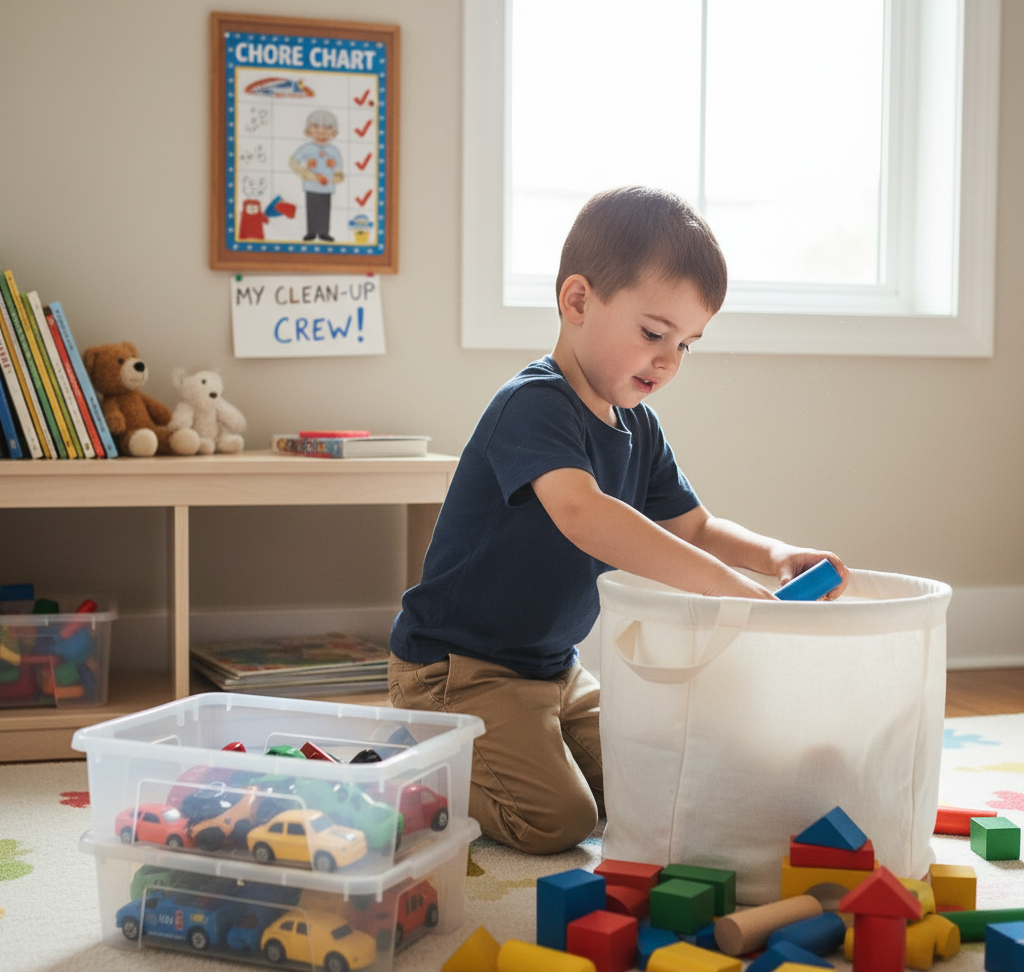
The benefits of integrating children into daily cleaning routines extend far beyond the immediate advantage of having an extra pair of hands.
Cultivating Responsibility and Accountability: Consistently performing a chore, no matter how small, teaches a child to be responsible for their own space and their own belongings. It instills a sense of ownership and accountability. They learn that a clean room or a tidy living area is not something that magically happens, but is the result of conscious effort. This understanding of cause and effect is a critical life lesson that translates into academic, social, and eventually, professional success.
Developing Essential Life Skills: The ability to maintain a clean and organized living space is a fundamental life skill that many young adults find themselves lacking when they first leave home. By teaching children how to properly sweep a floor, load a dishwasher, or do a load of laundry, you are equipping them with the practical knowledge they will need to live independently. These are not just chores; they are lessons in self-sufficiency.
Fostering Respect for Property and People: When children are actively involved in the effort it takes to clean and maintain a home, they develop a greater appreciation for it. A child who has just spent time vacuuming the living room carpet is far less likely to carelessly track mud across it. They begin to understand the work that goes into creating a pleasant environment and, by extension, develop more respect for the efforts of others.
Building a Strong Work Ethic: The discipline of completing a task, even when it’s not particularly fun, is the foundation of a strong work ethic. Learning to see a job through to completion and taking pride in the result is a value that will serve a child throughout their entire life.
Enhancing Motor Skills and Coordination: For younger children, many cleaning tasks are excellent for developing both fine and gross motor skills. Scrubbing a surface, using a spray bottle, sorting laundry, or sweeping with a small broom all help to improve coordination, strength, and dexterity.
Strengthening Family Bonds: Working together on household tasks can be a valuable opportunity for connection. It’s a time to talk, to teach, and to work side-by-side. Turning on some music and tackling the after-dinner cleanup as a family can transform a mundane chore into a positive, shared experience. It reinforces the idea that the family is a team.
The key to successfully involving children in cleaning is to start early and to make the tasks age-appropriate. The goal is not perfection, but participation and learning.
Toddlers (Ages 2-3)
At this age, children are naturally inclined to imitate their parents and are often enthusiastic about “helping.” The focus should be on simple, game-like tasks that are within their physical capabilities.
Putting Toys Away: This is the most fundamental chore. Make it a game by singing a “clean-up song” or timing how quickly they can fill the toy box. Clear, labeled bins with pictures can help them learn where everything goes.
Wiping Up Spills: Keep a small, designated cloth or sponge accessible for them. When a small spill occurs, encourage them to wipe it up themselves. It won’t be a perfect job, but it teaches immediate responsibility.
Placing Clothes in the Hamper: This simple task teaches them where dirty clothes belong.
“Dusting” with a Cloth: Give them a small microfiber cloth and let them wipe down low, safe surfaces like baseboards or the legs of a coffee table while you do the real dusting.
Preschoolers (Ages 4-5)
Preschoolers can handle more complex, multi-step tasks. They are developing more coordination and can follow simple instructions.
Setting the Table: They can be responsible for putting out napkins, placemats, and silverware.
Clearing Their Own Plate: Teach them to carry their own plate to the sink or countertop after a meal.
Making Their Bed: It won’t be hotel-perfect, but they can learn to pull up the duvet or comforter. Keep bedding simple to make this task easier for them.
Feeding Pets: Filling a pet’s food or water bowl (with supervision) is an excellent way to teach responsibility and empathy for another living being.
Helping with Groceries: They can help unload groceries, putting away non-breakable items in low cupboards.
Early Elementary (Ages 6-8)
At this age, children can take on more responsibility and begin to perform chores independently.
Sweeping or Using a Small Handheld Vacuum: They can be responsible for sweeping the kitchen floor after meals or vacuuming up small messes.
Loading and Unloading the Dishwasher: They can learn how to place dishes in the dishwasher (with guidance on sharp items) and can certainly help put away clean dishes.
Sorting and Folding Laundry: They can sort laundry into light and dark piles and can be taught how to fold simple items like towels and their own t-shirts.
Taking Out Trash and Recycling: They can be responsible for emptying smaller trash cans from around the house into the main bin.
Watering Plants: This chore teaches consistency and nurturing.
Tweens and Teens (Ages 9+)
By this stage, children are capable of handling almost any household chore. They can take on full responsibility for certain areas of the home.
Doing Their Own Laundry: Teach them the entire process from sorting to washing, drying, and putting away.
Preparing Simple Meals: This not only helps with household duties but is a crucial life skill.
Cleaning Their Own Bathroom: They can be responsible for wiping the counter, cleaning the mirror, and scrubbing the toilet.
Vacuuming and Mopping: They can be tasked with vacuuming the entire house or mopping floors.
Yard Work: Raking leaves, weeding, or mowing the lawn (for older teens) are all appropriate responsibilities.
Strategies for Success
Simply assigning chores is not enough. The approach you take will determine whether the experience is a positive one that builds character or a constant source of conflict.
Lead by Example: Children are more likely to adopt a positive attitude towards cleaning if they see their parents doing it without constant complaint. Frame chores as a normal and necessary part of taking care of the home you all share.
Provide the Right Tools: Invest in child-sized tools, like a small broom and dustpan or a lightweight vacuum. This makes the tasks physically easier and more engaging for them.
Teach and Train: Don’t assume your child knows how to do a chore properly. Take the time to demonstrate the task step-by-step. Do it with them the first few times. Be patient and expect that it won’t be done perfectly. The goal is effort, not perfection.
Use a Chore Chart: Especially for younger children, a visual chart with pictures or stickers can be a powerful motivator. It provides a clear set of expectations and a sense of accomplishment when a task is marked as complete.
Keep It Consistent: Chores should be a regular and predictable part of the routine, not something that is only enforced when the house is a disaster.
Frame It Positively: Use encouraging language. Instead of saying, “You need to clean your messy room,” try, “Let’s work together to make your room a nice, relaxing space.”
The Allowance Debate: Whether or not to tie chores to an allowance is a personal family decision. Some experts argue that children should do chores simply because they are part of the family team. Others find that a small allowance for chores that go above and beyond their basic self-care tasks (like cleaning their own room) can be a good way to teach them about work and money management.

Involving children in the daily upkeep of a home is a long-term investment in their development. There will be days of resistance, of chores done imperfectly, and of lessons that need to be repeated. But the cumulative effect of this practice is immeasurable. You are not just raising children; you are raising future adults who are responsible, capable, respectful, and self-sufficient. You are teaching them that a home is not just a place to live, but a shared space that is nurtured and cared for by everyone in it.
While teaching children to participate in daily cleaning is essential for their development, there are times when a family needs a comprehensive, deep clean that goes beyond the daily routine. For a professional touch that resets your home and makes daily maintenance easier for the whole family, consider the expert services of Toronto Shine Cleaning.














